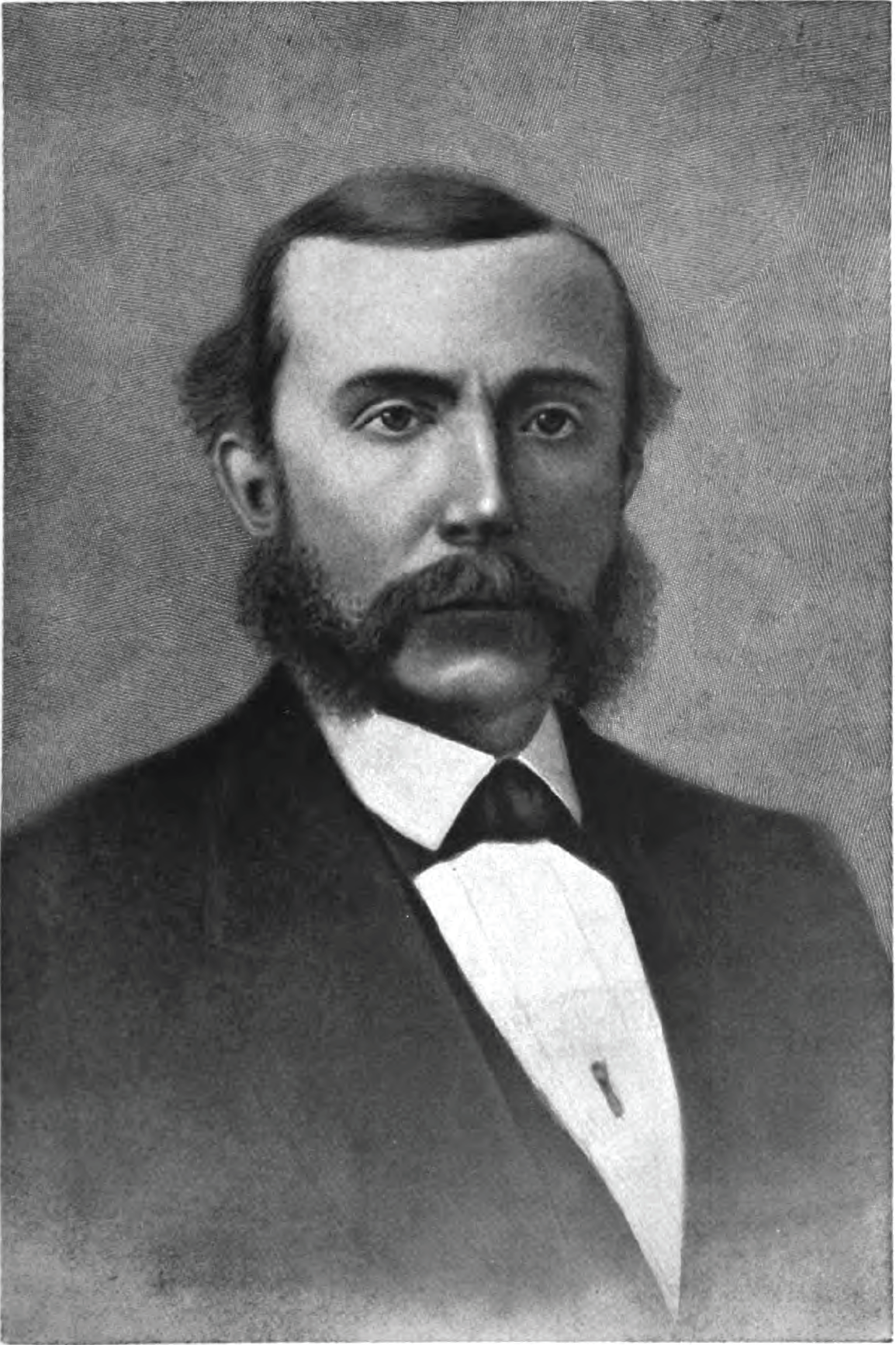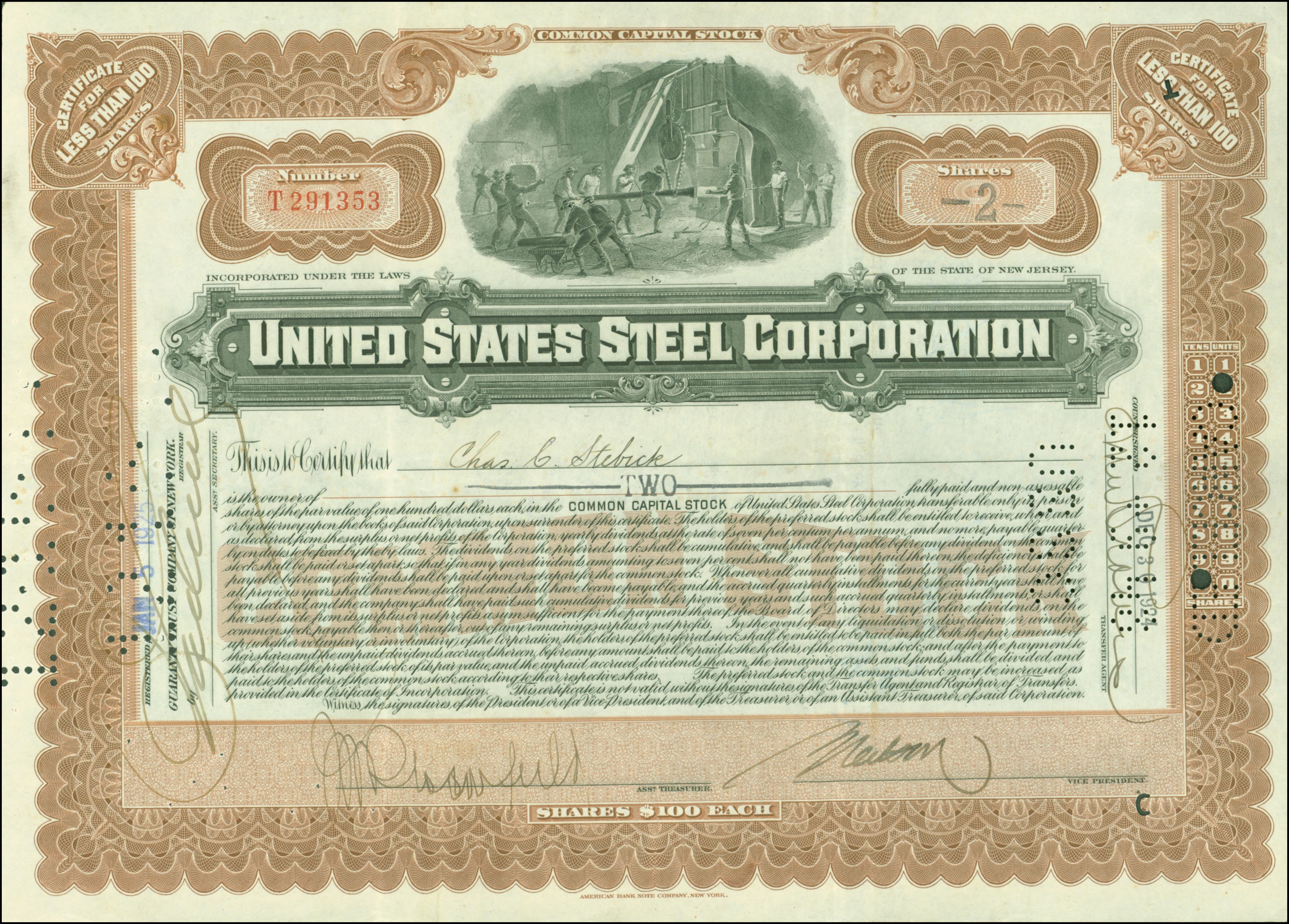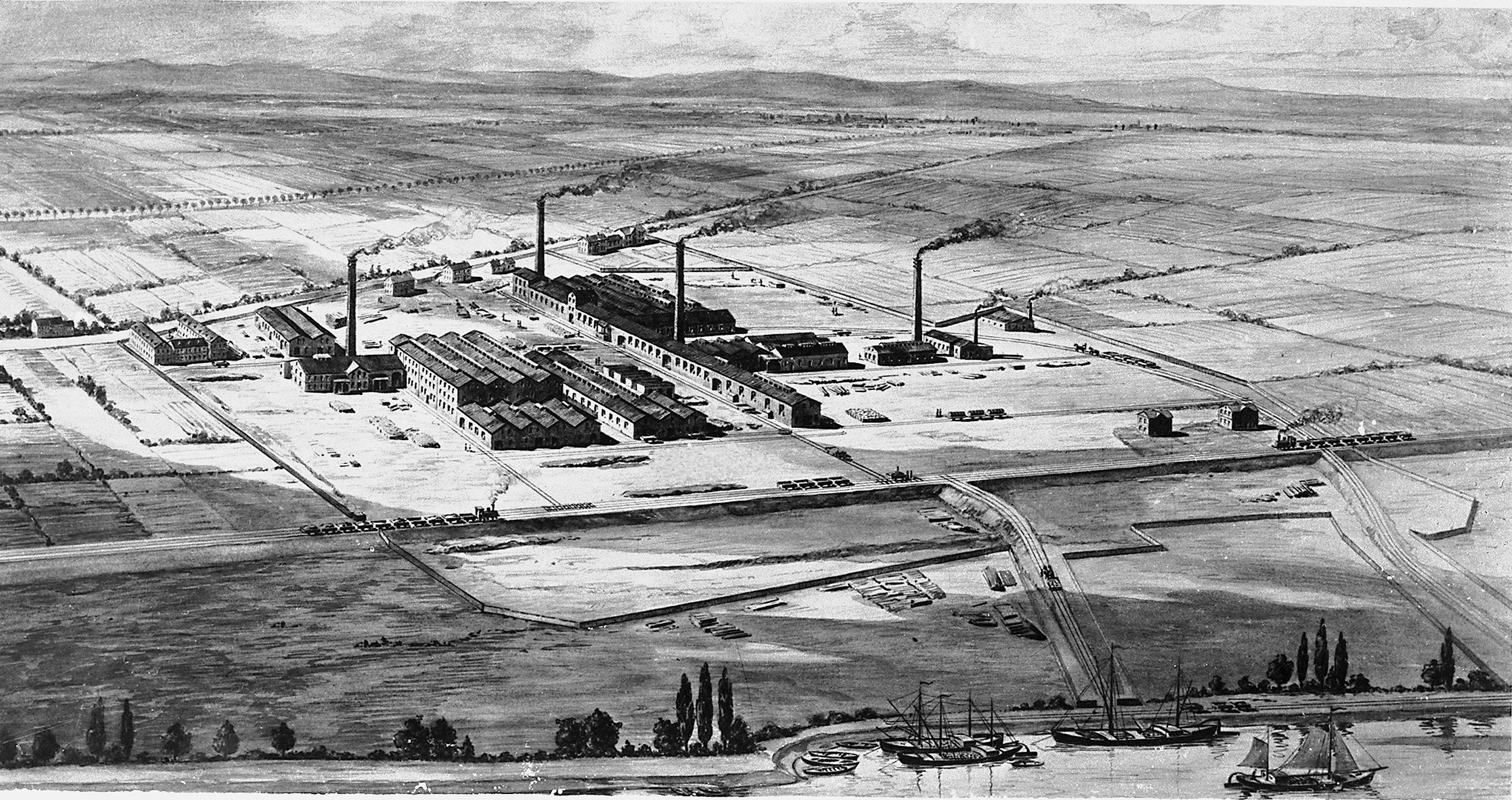|
Carl Duisberg
Friedrich Carl Duisberg (29 September 1861 – 19 March 1935) was a German chemist and industrialist. Life Duisberg was born in Barmen, Germany. From 1879 to 1882, he studied at the Georg August University of Göttingen and Friedrich Schiller University of Jena, receiving his doctorate. After military service in Munich, which he combined with research in the laboratory of Adolf von Baeyer, he was hired in 1883 at the Farbenwerke (dye company) of Friedr. Bayer & Co., which later became Bayer AG. In his career, he became confidential clerk (authorised signatory) and head of research. In 1900, he became the CEO of Bayer. Inspired by Standard Oil on a US tour, Bayer became part of IG Farben, a conglomerate of German chemical industries. Duisberg was head of the supervisory board for IG Farben. He died in Leverkusen. Work During World War I, the German army faced a great threat from an ammunition shortage. Indeed, the nitrates that were crucial for the production of gunpowder could ... [...More Info...] [...Related Items...] OR: [Wikipedia] [Google] [Baidu] |
Barmen
Barmen is a former industrial metropolis of the region of Bergisches Land, Germany, which merged with four other towns in 1929 to form the city of Wuppertal. Barmen, together with the neighbouring town of Elberfeld founded the first electric suspended monorail tramway system, the Schwebebahn ''floating tram''. History Barmen was a pioneering centre for both the early industrial revolution on the European mainland, and for the socialist movement and its theory. It was the location of one of the first concentration camps in Nazi Germany, KZ Wuppertal-Barmen, later better known as Kemna concentration camp. Oberbarmen (Upper Barmen) is the eastern part of Barmen, and Unterbarmen (Lower Barmen) the western part. One of its claims to fame is the fact that Friedrich Engels, co-author of ''The Communist Manifesto'', was born in Barmen. Another of its claims is the fact that Bayer AG was founded there by Friedrich Bayer and master dyer Johann Friedrich Weskott with the express pur ... [...More Info...] [...Related Items...] OR: [Wikipedia] [Google] [Baidu] |
Standard Oil
Standard Oil Company, Inc., was an American oil production, transportation, refining, and marketing company that operated from 1870 to 1911. At its height, Standard Oil was the largest petroleum company in the world, and its success made its co-founder and chairman, John D. Rockefeller, who is among the wealthiest Americans of all time and among the richest people in modern history. Its history as one of the world's first and largest multinational corporations ended in 1911, when the U.S. Supreme Court ruled that it was an illegal monopoly. The company was founded in 1863 by Rockefeller and Henry Flagler, and was incorporated in 1870. Standard Oil dominated the oil products market initially through horizontal integration in the refining sector, then, in later years vertical integration; the company was an innovator in the development of the business trust. The Standard Oil trust streamlined production and logistics, lowered costs, and undercut competitors. "Trust-busting" cri ... [...More Info...] [...Related Items...] OR: [Wikipedia] [Google] [Baidu] |
Carl Duisberg Society
Carl may refer to: *Carl, Georgia, city in USA *Carl, West Virginia, an unincorporated community *Carl (name), includes info about the name, variations of the name, and a list of people with the name *Carl², a TV series * "Carl", an episode of television series ''Aqua Teen Hunger Force'' * An informal nickname for a student or alum of Carleton College CARL may refer to: *Canadian Association of Research Libraries *Colorado Alliance of Research Libraries See also *Carle (other) *Charles *Carle, a surname *Karl (other) *Karle (other) Karle may refer to: Places * Karle (Svitavy District), a municipality and village in the Czech Republic * Karli, India, a town in Maharashtra, India ** Karla Caves, a complex of Buddhist cave shrines * Karle, Belgaum, a settlement in Belgaum d ... {{disambig ja:カール zh:卡尔 ... [...More Info...] [...Related Items...] OR: [Wikipedia] [Google] [Baidu] |
Standard Oil Of New Jersey
ExxonMobil, an American multinational oil and gas corporation presently based out of Texas, has had one of the longest histories of any company in its industry. A direct descendant of John D. Rockefeller's Standard Oil, the company traces its roots as far back as 1886 to the founding of the Vacuum Oil Company, which would become part of ExxonMobil through its own merger with Mobil during the 1930s. Today, the company, which merged from Exxon and Mobil in 1999, is the largest investor-owned oil and gas company in the world by revenue and market capitalization. Standard Oil (1870-1911) Origins Both Exxon and Mobil were descendants of Standard Oil, established by John D. Rockefeller and partners in 1870 as the Standard Oil Company of Ohio. In 1882, it together with its affiliated companies was incorporated as the Standard Oil Trust with Standard Oil Company of New Jersey and Standard Oil Company of New York as its largest companies. The Anglo-American Oil Company was establishe ... [...More Info...] [...Related Items...] OR: [Wikipedia] [Google] [Baidu] |
United States Steel
United States Steel Corporation, more commonly known as U.S. Steel, is an American integrated steel producer headquartered in Pittsburgh, Pennsylvania, with production operations primarily in the United States of America and in several countries across Central Europe. It was the 8th largest steel producer in the world in 2008. By 2018, the company was the world's 38th-largest steel producer and the second-largest in the United States behind Nucor Corporation. Though renamed USX Corporation in 1986, the company was renamed United States Steel in 2001 after spinning off its energy business, including Marathon Oil, and other assets from its core steel concern. History Formation J. P. Morgan formed U.S. Steel on March 2, 1901 (incorporated on February 25), by financing the merger of Andrew Carnegie's Carnegie Steel Company with Elbert H. Gary's Federal Steel Company and William Henry "Judge" Moore's National Steel Company for $492 million ($ billion today). At one time, U.S. ... [...More Info...] [...Related Items...] OR: [Wikipedia] [Google] [Baidu] |
General Motors
The General Motors Company (GM) is an American Multinational corporation, multinational Automotive industry, automotive manufacturing company headquartered in Detroit, Michigan, United States. It is the largest automaker in the United States and was the largest in the world for 77 years before losing the top spot to Toyota in 2008. General Motors operates manufacturing plants in eight countries. Its four core automobile brands are Chevrolet, Buick, GMC (automobile), GMC, and Cadillac. It also holds interests in Chinese brands Wuling Motors and Baojun as well as DMAX (engines), DMAX via joint ventures. Additionally, GM also owns the BrightDrop delivery vehicle manufacturer, GM Defense, a namesake Defense vehicles division which produces military vehicles for the United States government and military; the vehicle safety, security, and information services provider OnStar; the auto parts company ACDelco, a GM Financial, namesake financial lending service; and majority ownership in t ... [...More Info...] [...Related Items...] OR: [Wikipedia] [Google] [Baidu] |
BASF
BASF Societas Europaea, SE () is a German multinational corporation, multinational chemical company and the List of largest chemical producers, largest chemical producer in the world. Its headquarters is located in Ludwigshafen, Germany. The BASF Group comprises subsidiary, subsidiaries and joint ventures in more than 80 countries and operates six integrated production sites and 390 other production sites in Europe, Asia, Australia, the Americas and Africa. BASF has customers in over 190 countries and supplies products to a wide variety of industries. Despite its size and global presence, BASF has received relatively little public attention since it abandoned the manufacture and sale of BASF-branded consumer electronics products in the 1990s. At the end of 2019, the company employed 117,628 people, with over 54,000 in Germany. , BASF posted sales of €59.3 billion and income from operations before special items of about €4.5 billion. Between 1990 and 2005, the co ... [...More Info...] [...Related Items...] OR: [Wikipedia] [Google] [Baidu] |
Carl Bosch
Carl Bosch (; 27 August 1874 – 26 April 1940) was a German chemist and engineer and Nobel Laureate in Chemistry. He was a pioneer in the field of high-pressure industrial chemistry and founder of IG Farben, at one point the world's largest chemical company. Biography Early years Carl Bosch was born in Cologne to a successful gas and plumbing supplier. His father was Carl Friedrich Alexander Bosch (1843–1904) and his uncle was Robert Bosch, who pioneered the development of the spark plug and founded the multinational company Bosch. Carl, trying to decide between a career in metallurgy or chemistry, studied at the ''Königlich Technische Hochschule Charlottenburg'' (now the Technical University of Berlin) and the University of Leipzig from 1892 to 1898. Career Carl Bosch attended the University of Leipzig, and this is where he studied under Johannes Wislicenus, and he obtained his doctorate in 1898 for research in organic chemistry. After he left in 1899 he t ... [...More Info...] [...Related Items...] OR: [Wikipedia] [Google] [Baidu] |
Wilhelm Groener
Karl Eduard Wilhelm Groener (; 22 November 1867 – 3 May 1939) was a German general and politician. His organisational and logistical abilities resulted in a successful military career before and during World War I. After a confrontation with Erich Ludendorff the Quartermaster general () of the German Army, Groener was reassigned to a field command. When Ludendorff was dismissed in October 1918, Groener succeeded him. Groener worked with the new Social Democratic president Friedrich Ebert to foil a left-wing take-over during the German Revolution of 1918–19. Under his command, the army bloodily suppressed popular uprisings throughout Germany. Groener tried to integrate the military, which was dominated by an aristocratic and monarchistic officer corps, into the new republic. After resigning from the army in the summer of 1919, Groener served in several governments of the Weimar Republic as minister of transportation, interior and defence. He was pushed out of the govern ... [...More Info...] [...Related Items...] OR: [Wikipedia] [Google] [Baidu] |
Max Bauer
Colonel Max Hermann Bauer (31 January 1869 – 6 May 1929) was a German General Staff officer and artillery expert in the First World War. As a protege of Erich Ludendorff he was placed in charge of the German Army's munition supply by the latter in 1916. In this role he played a leading role in the Hindenburg Programme and the High Command's political machinations. Later Bauer was a military and industrial adviser to the Republic of China under Chiang Kai-shek. Rising in the army Bauer was born in Quedlinburg. He began to study medicine in Berlin, but then enlisted as an officer candidate in Foot Artillery Regiment 2 (heavy artillery) in 1888. The following year he attended the Kriegs-Schule in Hanover and then was commissioned. After regimental service, in 1898 he was appointed Adjutant to the Artillerie-Prüfungskommission (Artillery Testing Commission). In 1902 he took command of a battery as a captain. An observer of the Russo-Japanese war (1904-5), he was impresse ... [...More Info...] [...Related Items...] OR: [Wikipedia] [Google] [Baidu] |
British Navy
The Royal Navy (RN) is the United Kingdom's naval warfare force. Although warships were used by English and Scottish kings from the early medieval period, the first major maritime engagements were fought in the Hundred Years' War against France. The modern Royal Navy traces its origins to the early 16th century; the oldest of the UK's armed services, it is consequently known as the Senior Service. From the middle decades of the 17th century, and through the 18th century, the Royal Navy vied with the Dutch Navy and later with the French Navy for maritime supremacy. From the mid 18th century, it was the world's most powerful navy until the Second World War. The Royal Navy played a key part in establishing and defending the British Empire, and four Imperial fortress colonies and a string of imperial bases and coaling stations secured the Royal Navy's ability to assert naval superiority globally. Owing to this historical prominence, it is common, even among non-Britons, to ref ... [...More Info...] [...Related Items...] OR: [Wikipedia] [Google] [Baidu] |
World War I
World War I (28 July 1914 11 November 1918), often abbreviated as WWI, was one of the deadliest global conflicts in history. Belligerents included much of Europe, the Russian Empire, the United States, and the Ottoman Empire, with fighting occurring throughout Europe, the Middle East, Africa, the Pacific, and parts of Asia. An estimated 9 million soldiers were killed in combat, plus another 23 million wounded, while 5 million civilians died as a result of military action, hunger, and disease. Millions more died in genocides within the Ottoman Empire and in the 1918 influenza pandemic, which was exacerbated by the movement of combatants during the war. Prior to 1914, the European great powers were divided between the Triple Entente (comprising France, Russia, and Britain) and the Triple Alliance (containing Germany, Austria-Hungary, and Italy). Tensions in the Balkans came to a head on 28 June 1914, following the assassination of Archduke Franz Ferdin ... [...More Info...] [...Related Items...] OR: [Wikipedia] [Google] [Baidu] |

.jpg)





.gif)